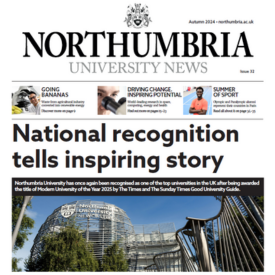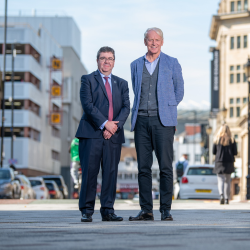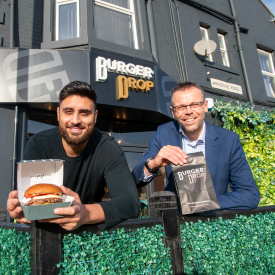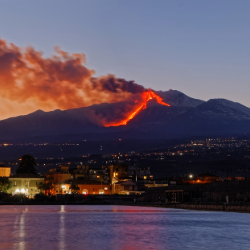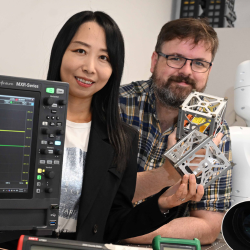-
Study
-
Undergraduate
- Search for a Course
- Undergraduate Open Day & Events
- Application Guides
- Northumbria University UCAS Exhibitions
- Foundation Years
- Undergraduate Fees & Funding
- School & College Outreach
- Continuing Professional Development
-
Postgraduate
- Postgraduate Study Degree
- Postgraduate Research Degrees
- Postgraduate Open Days and Events
- Postgraduate Fees & Funding
- Flexible Learning
- Thinking about a Masters?
- Continuing Professional Development
- Change Direction
-
Student Life
- The Hub - Student Blog
- Accommodation
- Life in Newcastle
- Support for Students
- Careers
- Information for Parents
- Students' Union
- Northumbria Sport
- Be Part of It
-
-
International
International
Northumbria’s global footprint touches every continent across the world, through our global partnerships across 17 institutions in 10 countries, to our 277,000 strong alumni community and 150 recruitment partners – we prepare our students for the challenges of tomorrow. Discover more about how to join Northumbria’s global family or our partnerships.
View our Global Footprint-
Applying to Northumbria
- European Union
- Our London Campus
- Northumbria Pathway
- International Events
- Entry Requirements and Country Representatives
- Regional Offices
-
Northumbria Language Centre
- Faculty Requirements
- Acceptable English Requirements
- Pre-sessional English Language and Study Skills
- Academic Language Skills Programmes (ALS)
-
International Fees, Funding & Scholarships
- International Undergraduate Fees
- International Undergraduate Funding
- International Masters Fees
- International Masters Funding
- International Postgraduate Research Fees
- International Postgraduate Research Funding
- International Money Matters
-
Life at Northumbria
- International student support
- Careers
-
International Mobility
- Current Northumbria Students
- Incoming Exchange Students
-
-
Business
Business
The world is changing faster than ever before. The future is there to be won by organisations who find ways to turn today's possibilities into tomorrows competitive edge. In a connected world, collaboration can be the key to success.
More on our Business Services -
Research
Research
Northumbria is a research-rich, business-focused, professional university with a global reputation for academic quality. We conduct ground-breaking research that is responsive to the science & technology, health & well being, economic and social and arts & cultural needs for the communities
Discover more about our Research -
About Us
-
About Northumbria
- Our Strategy
- Our Staff
- Place and Partnerships
- Student Profiles
- Alumni Profiles
- Leadership & Governance
- Academic Departments
- University Services
- History of Northumbria
- Contact us
- Online Shop
-
-
Alumni
Alumni
Northumbria University is renowned for the calibre of its business-ready graduates. Our alumni network has over 244,000 graduates based in 178 countries worldwide in a range of sectors, our alumni are making a real impact on the world.
Our Alumni - Work For Us
What will I learn on this module?
Robin Blaetz says; ”Experimental and avant-garde film is cinema made outside of the film industry on an artisanal basis, largely without regard to the struc-tures and demands of traditional narrative film. While experimental film as a separate mode of film practice is international, it’s most prevalent manifesta-tions were in western Europe before World War II and North America and Britain in the postwar period. Avant-garde film is often produced in the context of the larger art world, particularly in relation to the visual arts and literature. It is also frequently produced as a critique of dominant, classical Hollywood cinema and functions in relation to political movements and strategies, such as feminism.”
Here you articulate the conceptualisation of ideas informed by historical, cultural and critical contexts that are derived from the avant-garde, in forms that challenge and subvert traditional filmmaking approaches.
You will demonstrate your understanding either by researching and writing an essay on an aspect of experimental filmmaking or by making your own personal response to the critical ideas presented in the lectures and seminars.
How will I learn on this module?
Experimental Film 1 consists of lecture/seminar sessions that lay out the major themes and approaches of experimental and avant-garde filmmaking. This is a form that heavily relies on the wider contexts that surround it, from art movements and multi-media installation, to the ideologies that underpin it and filmmaking modes of production. From the short art film that emerges from the avant-garde, to quasi political deconstructions of cinema; such as materialist and structuralist work, multi media installation, digital moving image and to some extent ‘live visuals’, the content of the lectures provokes you to either write about the form or make work in response to it, both supported by appropriate academic support.
You will then receive written feedback on your final summative submissions which will detail areas that could be improved in future work. You will also be offered the opportunity to receive further verbal feedback following this formal assessment, so that you can follow up any concerns you have regarding your critical development and future learning.
How will I be supported academically on this module?
This module sets out the context and history of experimental filmmaking in a series of lectures and seminars, where you get to understand the approaches and meaning of the discourses surrounding the subject. As you are asked to either make an individual film essay in response to the module materials or write a standard essay, you will be supported in this endeavor by relevant tutor supervision in the form of tutorial meetings.
As ever, the seminars are places for discussion where feedback is offered in an informal basis and the tutorials help guide and advise your response to the subject. The written feedback at the end of the module after assessment gives advice on how to improve and constructively critiques your performance on the module.
What will I be expected to read on this module?
All modules at Northumbria include a range of reading materials that students are expected to engage with. Online reading lists (provided after enrolment) give you access to your reading material for your modules. The Library works in partnership with your module tutors to ensure you have access to the material that you need.
What will I be expected to achieve?
Knowledge & Understanding:
1. Understand the key components that make up Experimental and Avant-Garde filmmaking.
Intellectual / Professional skills & abilities:
2. Deliver creative and imaginative responses, utilising module materials, in a professional manner, with appropriate technical skills.
3. Critically evaluate the work in the context of the module.
Personal Values Attributes (Global / Cultural awareness, Ethics, Curiosity) (PVA):
4. Show wider understanding of the context of the experimental film and its place in a wider culture.
5. Be curious and challenge conventions in such a way as to be truly experimental.
How will I be assessed?
Summative assessments will test skills of
organisation, communication, research, critical engagement, and practice and will be focused
upon the analysis of key issues arising from the syllabus. You will be assessed by either writing a standard essay of 2000 words approximately or by making an individual experimental film as a
response to the brief, with a 500 word ‘Artist’s Statement’ – addressing all MLOs.
The standard essay and the Artist’s Statement should show your depth of enquiry into the
Subject with intellectual skills in evidence addressed in MLOs 3, 4 & 5.
Pre-requisite(s)
None
Co-requisite(s)
None
Module abstract
Experimental filmmaking allows you to have total creative control over your project and engage in all aspects of the filmmaking process, from ideation through to post production. You can try different approaches in this module that both complements and counterpoints its twin module Film Production 1.
This module seeks to provide an adventure in conceptualising film ideas: while the module spends its first part exploring the oppositional world of film in the visual arts, you get the chance to make an individual response to the ideas presented via written essay or your own experimental film, provoking a creative approach intended to be taken through into your wider work on the programme.
Course info
UCAS Code P310
Credits 20
Level of Study Undergraduate
Mode of Study 3 years Full Time or 4 years with a placement (sandwich)/study abroad
Department Arts
Location City Campus, Northumbria University
City Newcastle
All information is accurate at the time of sharing.
Full time Courses are primarily delivered via on-campus face to face learning but could include elements of online learning. Most courses run as planned and as promoted on our website and via our marketing materials, but if there are any substantial changes (as determined by the Competition and Markets Authority) to a course or there is the potential that course may be withdrawn, we will notify all affected applicants as soon as possible with advice and guidance regarding their options. It is also important to be aware that optional modules listed on course pages may be subject to change depending on uptake numbers each year.
Contact time is subject to increase or decrease in line with possible restrictions imposed by the government or the University in the interest of maintaining the health and safety and wellbeing of students, staff, and visitors if this is deemed necessary in future.
Useful Links
Find out about our distinctive approach at
www.northumbria.ac.uk/exp
Admissions Terms and Conditions
northumbria.ac.uk/terms
Fees and Funding
northumbria.ac.uk/fees
Admissions Policy
northumbria.ac.uk/adpolicy
Admissions Complaints Policy
northumbria.ac.uk/complaints





